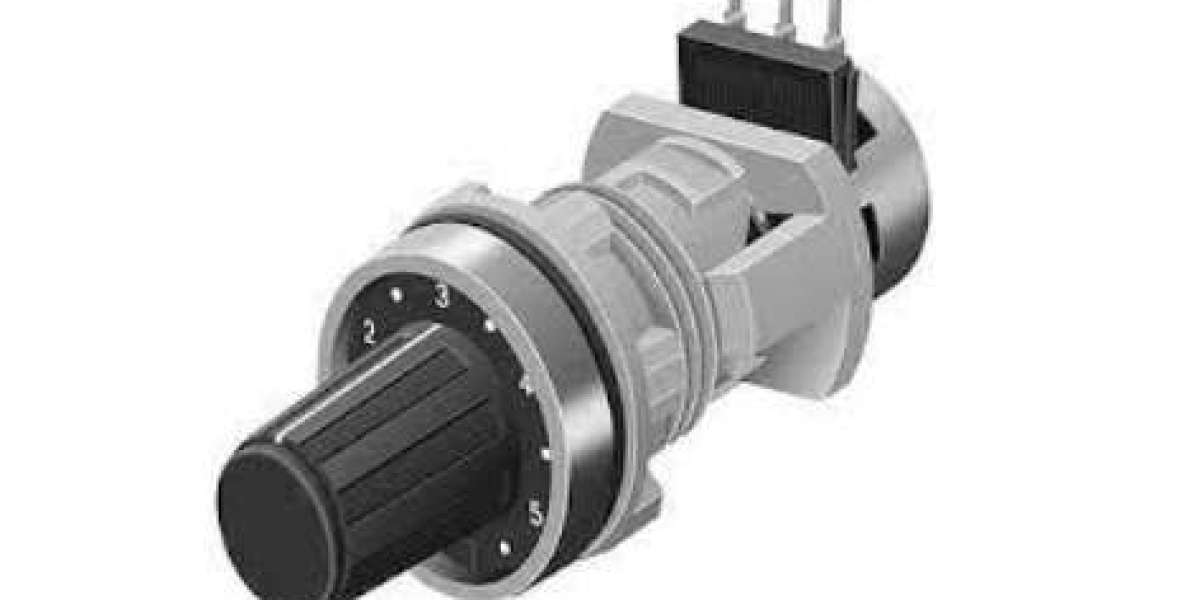In automated testing and measurement systems, accuracy is crucial. Even a small error can distort results, slow down production, and result in costly mistakes. That's why engineers in various industries rely on potentiometers, a reliable, analog-based solution for real-time position and displacement feedback. Their simplicity, durability, and immediate signal output make them essential in test setups that demand repeatability, stability, and precise measurement tolerances.
The Role of Potentiometers in Modern Test Systems
Potentiometers are electromechanical sensors that convert mechanical motion into a readable electrical signal. Their analog nature gives them a key advantage in environments where digital noise, processing delays, or over-engineered solutions compromise speed and clarity. In test and measurement contexts, potentiometers are often deployed to:
- Track actuator travel in fatigue testing rigs
- Measure linear or angular displacement during calibration processes
- Verify part tolerances on high-speed production lines
These sensors help engineers achieve higher confidence in their data by minimizing latency and eliminating the complexity of unnecessary software conversions.
Where Potentiometers Outperform Alternatives
Potentiometers often outperform encoders and digital sensors in test environments where immediate feedback, noise resistance, and straightforward integration are critical. Their analog signal is naturally resistant to interference and doesn't require complex decoding, which streamlines system architecture for applications where speed, simplicity, and real-time accuracy matter most; potentiometers provide a durable, cost-effective solution that delivers consistent results even under demanding conditions.
- Real-Time Analog Feedback: Potentiometers provide an immediate signal response without digital conversion delays, making them ideal for capturing fast, real-time data during dynamic testing conditions.
- Simplified Integration: Their analog nature allows direct wiring into most control and DAQ systems without the need for middleware, complex drivers, or custom coding.
- Cost-Effective Precision: Despite their affordability, potentiometers offer a high level of resolution and repeatability, making them a smart investment for labs that demand accuracy on a budget.
- Environmental Durability: With ruggedized enclosures and appropriate sealing, potentiometers maintain stable output even in the presence of vibration, dust, and moisture.
Key Industries Relying on Potentiometers for Accuracy
Many industries depend on consistent, measurable performance to validate equipment, products, or designs. ETI Systems supports test applications in:
- Automotive Component Testing: To validate actuator range, steering response, and wear patterns.
- Medical Device Validation: For precision movement testing in surgical robotics and lab instrumentation.
- Aerospace Prototyping: Used in wind tunnel simulations and control surface testing.
- Electronics QA Labs: Ensuring accurate placement and alignment of circuit components.
In each use case, potentiometers offer an effective way to reduce uncertainty and increase trust in the data being collected.
Choosing the Right Potentiometer for Test and Measurement
The effectiveness of a potentiometer hinges on its compatibility with the testing system. Key factors engineers should consider include:
- Stroke Length or Rotation Range: Must align with the maximum mechanical movement of the test setup.
- Resistance and Output Type: Choose voltage or current outputs based on your control system's input requirements.
- Mechanical Interface: Shaft, sliding rod, or rotary configurations should match how movement is captured.
- Mounting Options: Choose from panel-mount, PCB-mount, or custom bracket solutions depending on space and installation needs.
- Environmental Tolerance: Look for IP ratings and material durability if testing occurs in variable conditions.
Why Potentiometers Remain a Trusted Standard
Despite the rise of digital sensors, potentiometers remain highly relevant due to their reliability, simplicity, and adaptability. Their ability to provide clean analog signals without complicated interfacing makes them ideal for measurement tasks where precision is non-negotiable. Manufacturers like ETI Systems have continued to evolve potentiometer designs to meet modern performance demands while maintaining their core advantage: real-time, noise-free signal output.
Best Practices for Maintaining Potentiometer Accuracy
- Use Stable Power Sources: Ensure your potentiometers are powered by regulated voltage sources to prevent signal fluctuation and data inconsistency caused by power noise.
- Avoid Over-Travel: Potentiometers are mechanical devices with defined limits. Exceeding their range can damage internal components and reduce their operational lifespan.
- Plan for Alignment: Misaligned shafts or rods can introduce wear and drift. Proper alignment minimizes friction, reduces mechanical stress, and preserves measurement accuracy.
- Perform Periodic Calibration: Over time, even high-quality potentiometers can drift. Regular calibration ensures continued accuracy and helps detect early signs of degradation or damage.
Ready to eliminate uncertainty in your test setups? ETI Systems' potentiometers are engineered for precision, reliability, and seamless integration.
Frequently Asked Questions
How do potentiometers enhance testing accuracy?
Potentiometers provide continuous analog feedback that's easy to read and highly responsive to movement.
What makes a potentiometer better than a digital sensor?
For many test environments, analog signals are faster and more reliable, especially in noise-heavy conditions.
Can potentiometers be used for both linear and rotary testing?
Yes. Depending on the model, potentiometers can measure displacement or rotation accurately.
How durable are potentiometers in lab environments?
With proper housing and ratings, a potentiometer can withstand dust, moisture, and frequent use.
Do I need to calibrate potentiometers often?
Periodic potentiometer calibration is recommended to ensure optimal accuracy, especially in high-cycle applications.
Are potentiometers compatible with standard DAQ systems?
Yes. Potentiometers' analog output integrates easily with most data acquisition systems.
What industries rely most on potentiometers for testing?
Automotive, medical, aerospace, and electronics are major users.
Can potentiometers work with PLCs?
Absolutely. The voltage output of a potentiometer is compatible with most PLC analog input modules.



